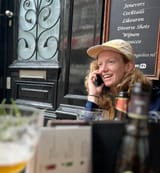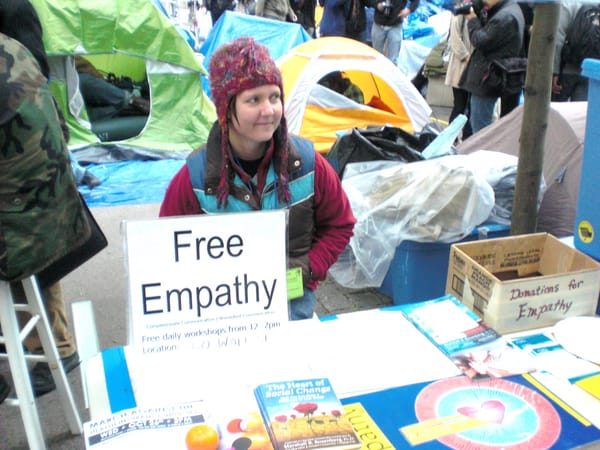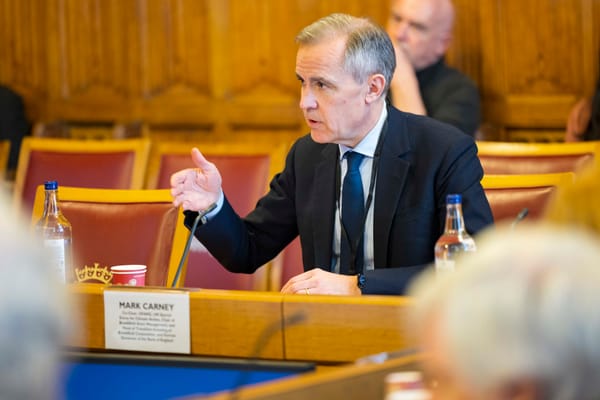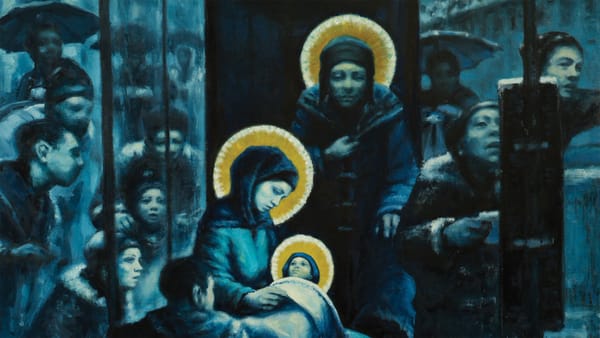Island of strangers?
The outrage over echoes of Enoch are valid, but the deeper question remains: where *are* our communities?
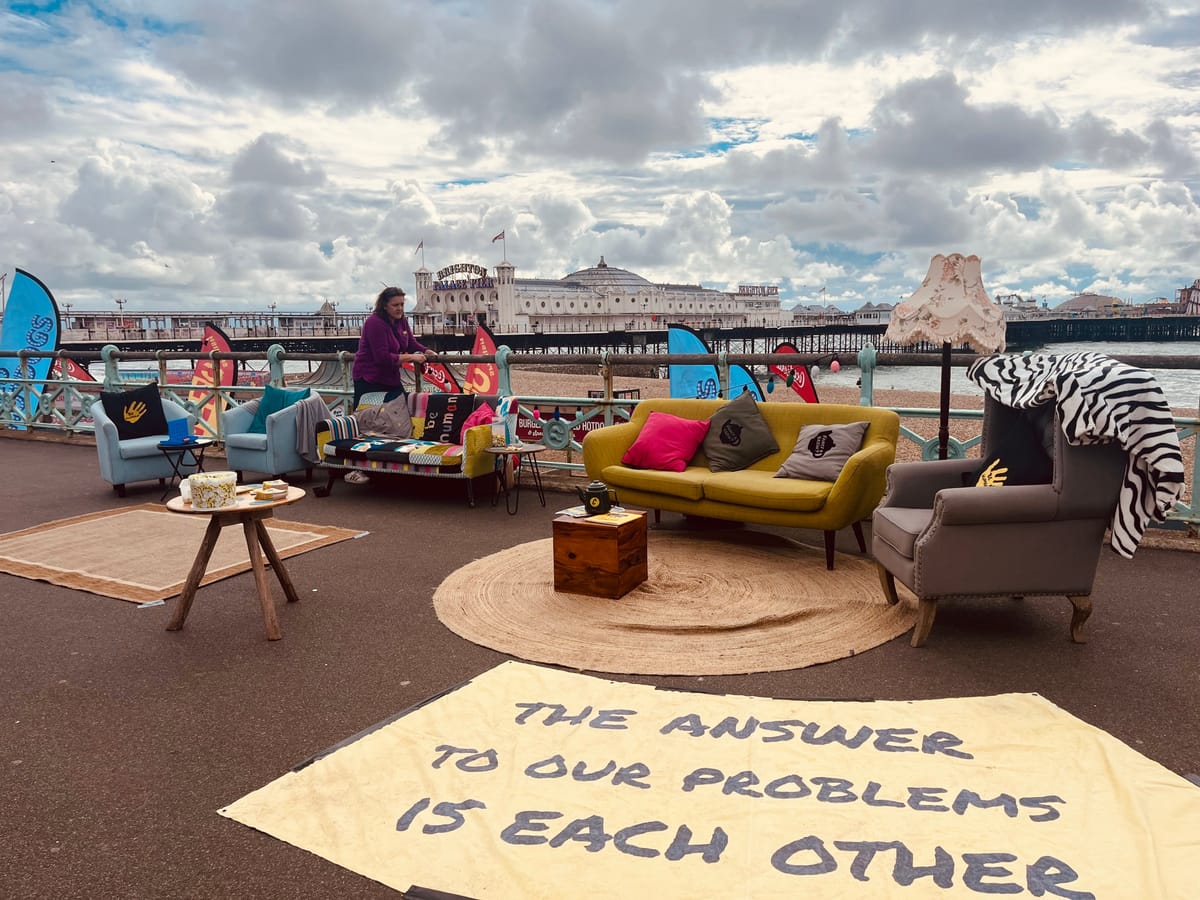
Following Keir Starmer’s ‘Island of strangers’ speech I, like many, experienced a full range of reactions at his choice of words – from disgust and disappointment to downright embarrassment. Oh, here goes Starmer I thought, trying to out-wanker Nigel Farage again. Why fan the flames of an already raging bin fire? It’s painful watching immigration used as a political football for all of the UK’s woes, Starmer repeatedly intercepting the ball from Reform and proudly scoring own goals.
Another part of me, though, couldn’t help feeling as though something about the phrase rang true. Not for the reasons Starmer outlined: that immigration is to blame for much of the public’s sense of isolation. But for other, far more blindingly obvious reasons that the government is entirely ignoring.
Where’s my community?
How many of us can truly say we know our neighbours? Which of us, if we’re honest with ourselves, regularly take part in improving our community, or feel a sense of belonging at all? I have certainly felt the gnawing discomfort of loneliness and detachment living in London, the place I was born and have lived most of my life. It took me years to feel grounded in the city after leaving home and finding a solid community of my own. There’s a long list of reasons for this, of course, but I’m not alone in the feeling. A poll from 2017 found that 60% of Brits don’t know their neighbours, never mind trust them to help them when they need it. This situation, it turns out, is only getting worse, but for reasons not mentioned in the Prime Minister’s speech.
A few days after the ‘Island of strangers’ controversy, More in Common released polling (taken before the speech took place and drawing on 13,000 people) showing that 44% sometimes feel like “strangers in their own country”, and more broadly, 50% feel “disconnected from society around them”. The reasons they gave are far more linked to wealth inequality than immigration however, with those on lower incomes more likely to feel socially isolated, and lack trust in their community and the political system, because they feel it does nothing for them (it’s also a major feeling behind the success of Trump in America.)
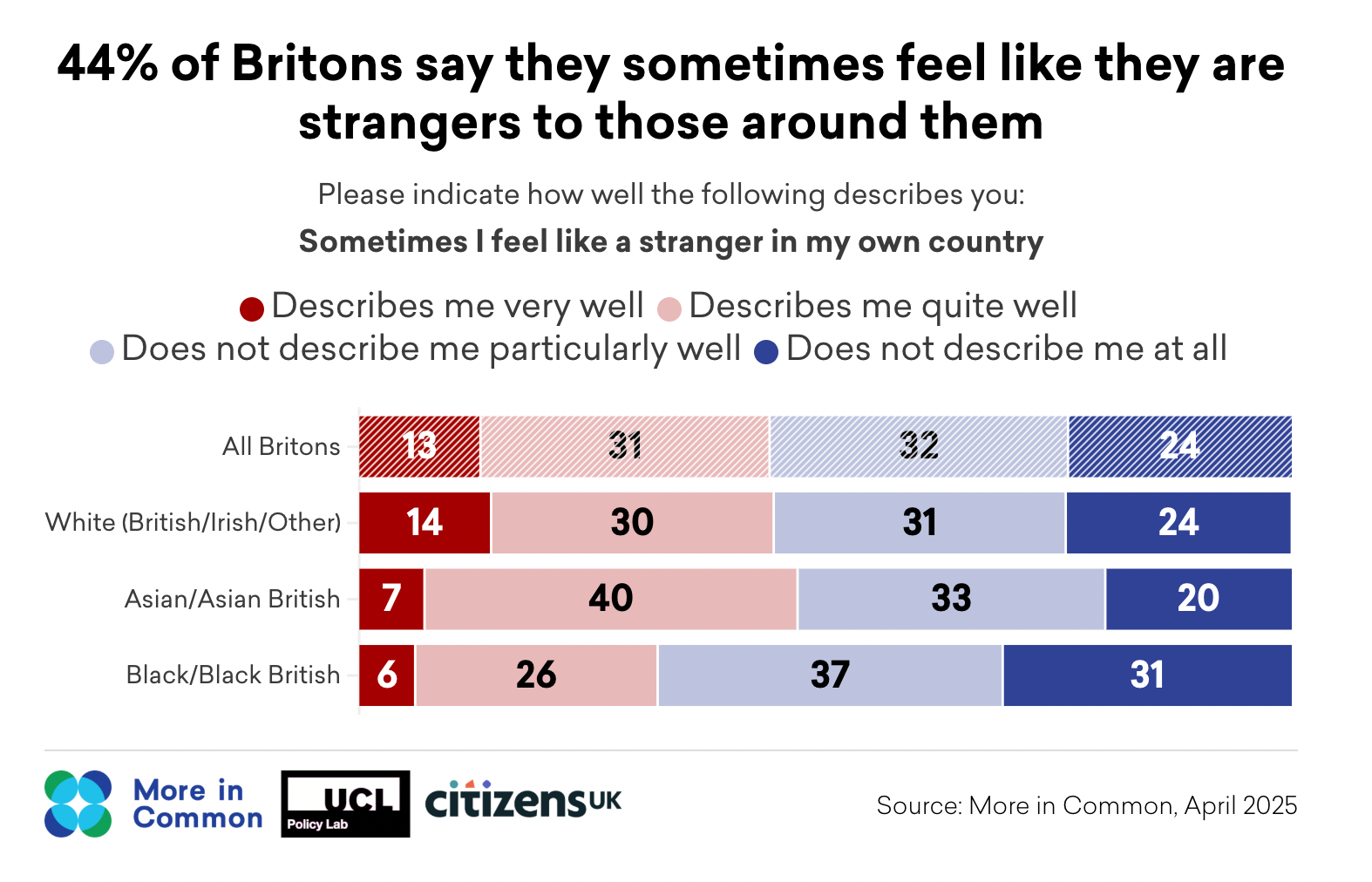
Who can blame us? The cost of living crisis forced millions into poverty on the coat-tails of COVID, which saw the shutting down of small businesses and ‘third spaces’ in droves. Many feel worse off than before the pandemic. Our bills continue to rise meaning there’s less money to pay for the things we enjoy, and less affordable/free spaces in which to go and do them. All while the global top 1% became $26 trillion richer since 2020 pushing the wealth divide into the stratosphere.
This all follows a decade of austerity that began with the selling off of the social framework in the UK, and the mass closure of community meeting places, arts spaces and youth clubs. And how can we possibly forget Brexit, which officially turned us into an island once more, dividing the Union and cutting us off from Europe – most of it funded by five of the richest men in the UK.
Some could argue that this segregation we feel is much more due to class and the super-rich, with divisions in society only being compounded by increased ‘polarisation in incomes and between regions.
It’s no wonder then that so many of us feel isolated and lonely – we actually have a minister for loneliness here in the UK, it’s that bad! Being in community has become nearly impossible, the very concept stripped away from under us.
It’s something many of us have simply never learned how to do, having had our minds warped by decades of Thatcher’s myth that “there’s no such thing as society”, convincing us we’re all better off fending for ourselves and that the funding of public services was making us all poor. Most people in the UK don’t live in areas with community hubs where we can meet our neighbours and share stories; many of those living in cities are forced to move from place to place to chase cheaper rents because we can’t afford to buy a house of our own.
We’ve had the very idea of community all but wiped from our minds in a deliberate strategy to turn us into hyper-consumers, lulling us into estrangement with few ways of doing the most human thing: to gather, get to know one another, share our stories and build connection. Hyper-capitalism has been programming us for decades, leading us to believe we simply don’t need each other, that online community is enough, and that earning money to fill our lives with meaningless crap we don’t need is the pinnacle of meaning.
Don’t bowl alone
It’s no wonder this is coming to a head now as our societies become ever more fractured. And yet, there’s research that shows that living in healthy communities is in fact the most important thing for our overall well being, happiness and sense of purpose. The author of the now famous book Bowling Alone, Robert D Putnam, has said, “Community connectedness is not just about warm fuzzy tales of civic triumph. In measurable and well-documented ways, social capital makes an enormous difference in our lives… Social capital makes us smarter, healthier, safer, richer, and better able to govern a just and stable democracy.”
Putnam’s incredible research into the decline of social capital in the United States shows that a decline in social trust, civic engagement, and community involvement, leads to increased isolation and negative mental health consequences. Clubs, unions, faith communities and other associational life, he argues, are fundamental in creating healthy social cohesion built on trust and belonging. “People divorced from community, occupation, and association” he explains “are first and foremost among the supporters of extremism.”
In light of this, I can’t help but feel as though Starmer’s ‘island of strangers’ comment should be looked at for what it really is: part of a decades-long project in ‘othering’ and providing the public with a common enemy – aka a distraction – so we keep on fighting each other, instead of coming together to dismantle and transform the very power structures that keep us all struggling.
The Labour Party seem to be pandering to this in their own sorry bid to win popularity with Reform voters rather than doing the hard work of reducing wealth inequality and making life better for everyone.
Bridging back to power
So where’s our power then? Why can’t we get some of that? Well, we can, but it means we have to do it together.
We can tackle this othering and begin healing the divisions in society with what john a. powell calls ‘bridging’, finding ways to connect and find common ground with others. This doesn’t mean simply negotiating a middle position, but addressing power structures and contexts of different groups, while anchoring our efforts to bridge with those we don’t necessarily agree with, in the values of everyone. “Bridging,” powell says, “recognizes the need for a larger and unfolding story that holds our aspirations for a shared future based in belonging, not fear and separation.”
In the current context then, knowing that power thrives off of our division, bridging and building community is a rebellious act, one we urgently need to all embrace and enact. Because ultimately, the greatest lie is that we don’t need each other, that we can do this alone. We do need each other and we can’t do this alone.
We’ve said this before, but we can’t rely on politicians to save us. Our very survival during the collapse of our political and climate systems requires all of us to realise that we are the ones coming to save us. We are the army of bridgers we’re waiting for, building solidarity and finding ways to move beyond what we can’t agree on, towards what we can. Creating ways to rebuild communities where we all belong then is fundamental to reclaiming our sense of shared purpose in this time of deep uprootedness and disconnection.
Good Neighbours
It’s all well and good saying ‘let’s be friends with everyone!’ and another thing to do it. But, there’s many ways (both large and small) we can begin to build bridges between communities, from volunteering locally to holding a community picnic or open day in a local town hall, to starting local campaigns together to fix things where we live.
One way Absurd Intelligence is addressing this is through our new Good Neighbours project, to gather not just people but stories — the stories of everyone’s Good Neighbours — to showcase across events this summer.
Good Neighbours are the people on your street, the friend running a brilliant local project, the venues and groups that bring communities together, as well as the kindness of strangers offering hotel rooms and lifts to those stranded, as we just witnessed in Liverpool — connecting people and countering division.
You wouldn’t big yourself up :) but I bet you can big up others. Our aim is to tell those stories of your Good Neighbours. Every Good Neighbours story will also be put into a digital directory that’s going to be a major cultural artefact created from voices gathered as the Fête of Britain, a project we’re helping deliver with our friends at Hard Art, travels the country, using culture and creativity so we all feel part of something bigger.
If you’re in Liverpool, come along to Fete of Britain x Rough Trade on 12th June. It’s going to brilliant. Tickets here.
Or interested in sending us a story about your Good Neighbour? Get in touch!
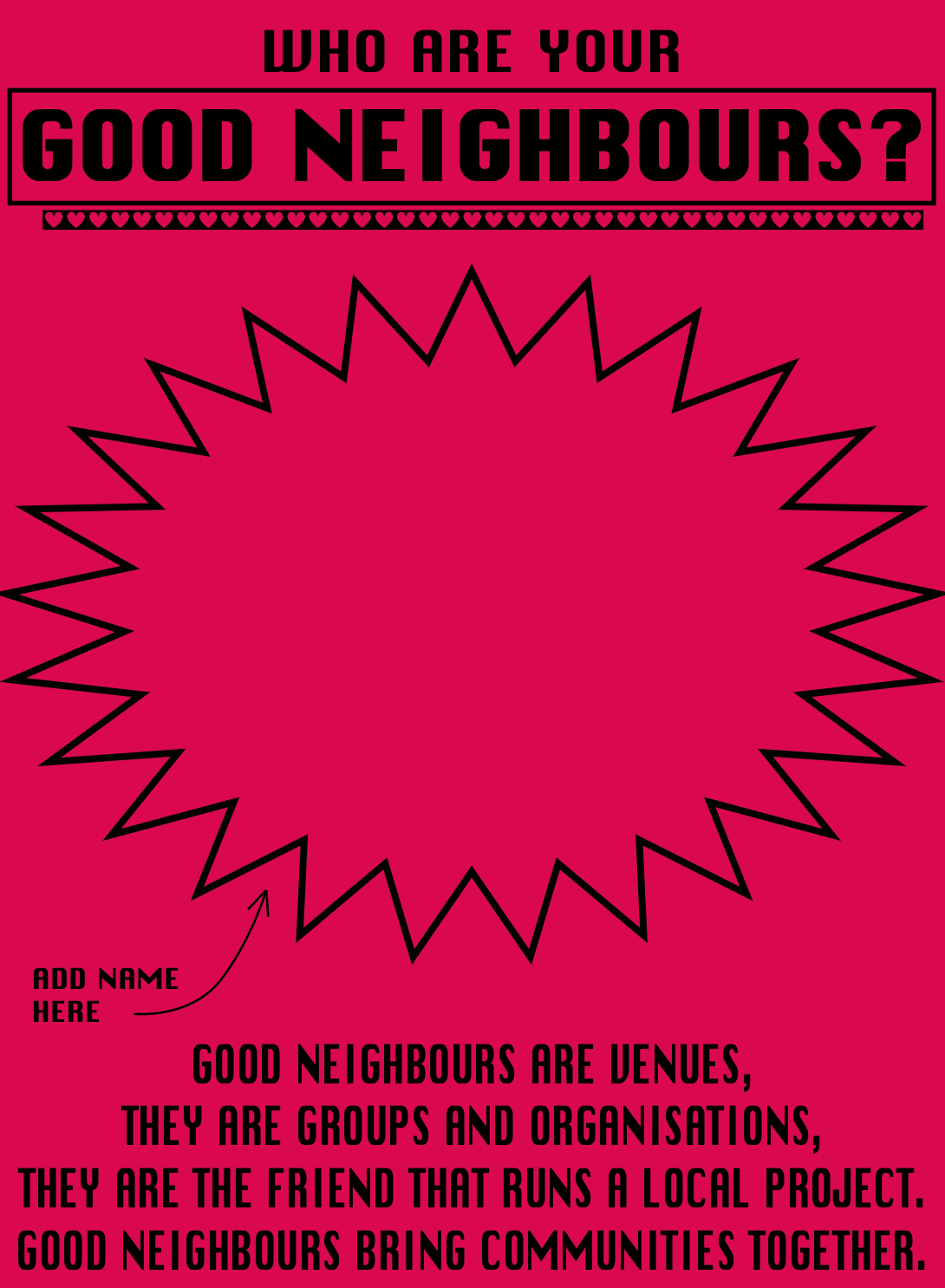
Elsewhere in Absurdity...
The extra-curricular activity was so intense this week not one but two of the team woke up on Tuesday morning after the bank holiday with broken shoulders and bad bits. Clare (northeast nails) has made a full recovery while Alex (southern petal) is on an IV-drip (orally administered to stop his moaning). As context:
- On Friday there was Team Outing Part 1 to celebrate ‘DAVE DAY’ (Britain’s brilliant new bank holiday) to support the legends Kneecap at the Wide Awake Festival and their consistent calls for a ‘Free, Free Palestine’;
- On Saturday there was Team Outing Part 2 to see the legend that is folk singer Jenn Reid as she launched her new album (dressed in Maddy’s hand-made outfit) at TheatreShip in London – massive kudos to Sophie and those around her (Joe, Ian, etc!) for collaboratively making this happen;
- On Sunday Charlie and Alex went to see the rancid, racist, reckless resurrection of Bernard-Manning-in-Sequins that is Katie Hopkins on her Batshit Bonkers Britain tour – which was even more discombobulating than we’d imagined. “One less [Muslim] won’t hurt, will it?” joked Hopkins about knocking over brown and Black people with her bad driving. No wonder there’s no cameras allowed inside... Why did we go? For narrative research purposes, to hear the rhetoric and claims made by the grifters who are milking the disillusionment in this country for money as they stoke up anger and hurt. We came away pretty nonplussed by the banality of evil in her jokes, especially at people with disabilities; we waited and listened for the laughter around us that, mostly, didn’t come at the rancid jokes, but that did come from her claims that Britain is broken and lost. More on the narrative soon...
- On Monday Clare went to Feel the Sound at the Barbican, highly recommended, especially on the difference between hearing and listening;
- And all this week Charlie and our friends Tracey Sage, The Camerados, The Bureau of Silly Ideas, Common Census, Sweatshop, the Ear of Britain, Empathy Museum, Ed Gillespie, Brian Eno and others have gone to Great Yarmouth to connect Hard Art and The Fête of Britain with Great Yarmouth’s Out There Festival.

